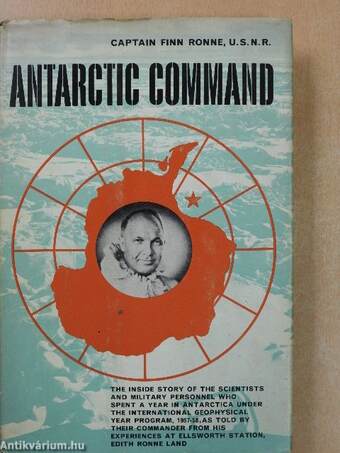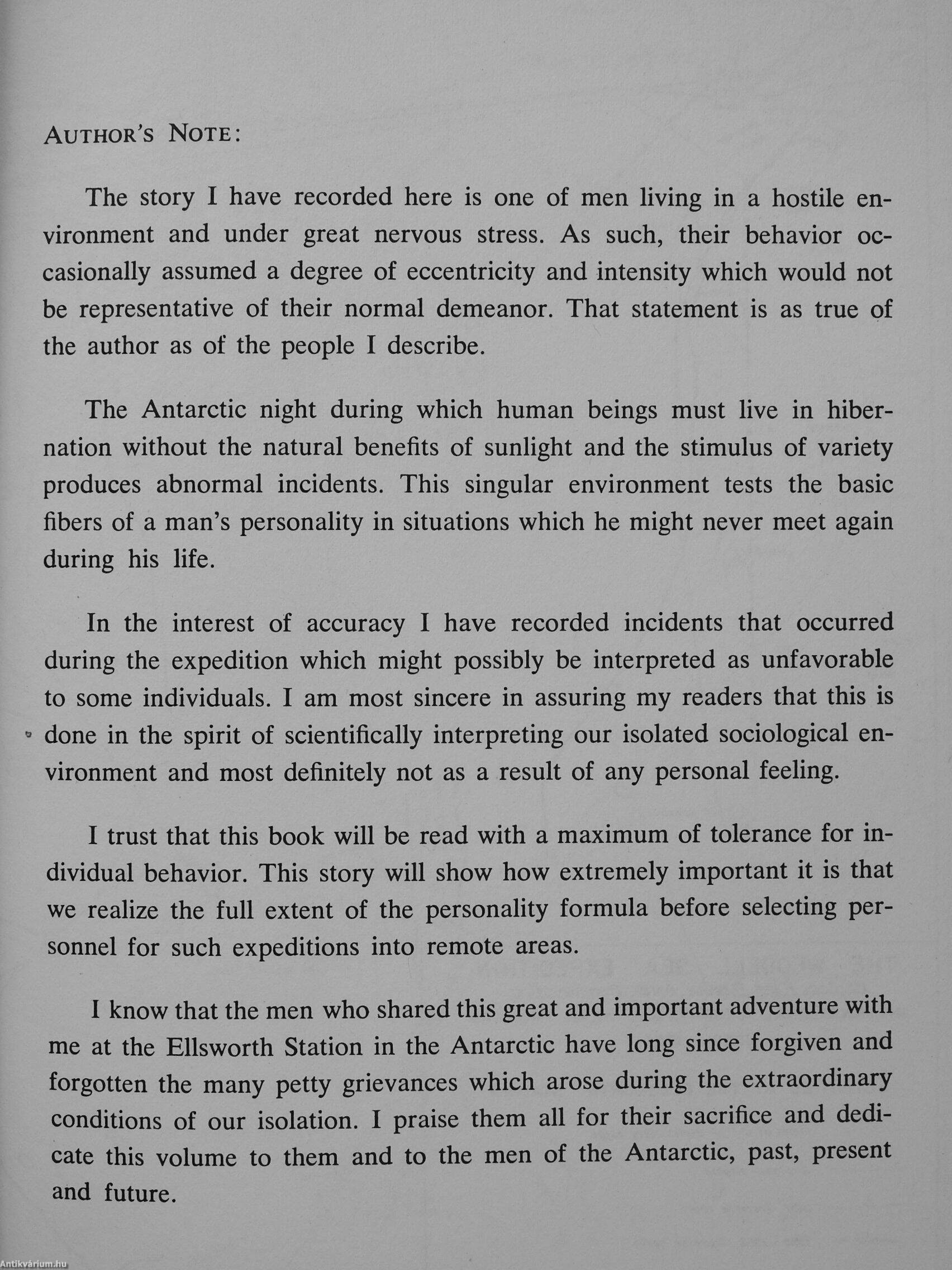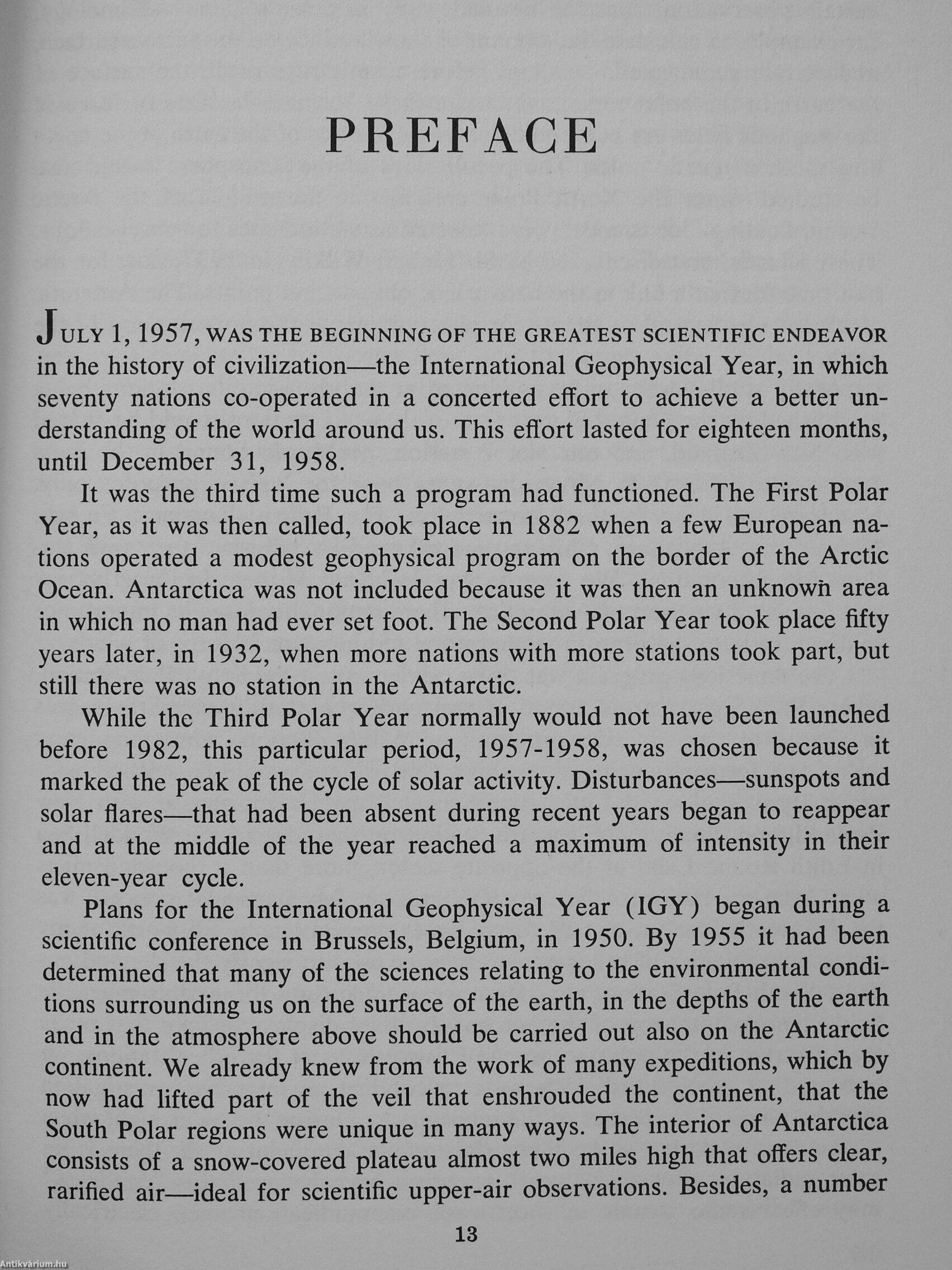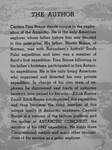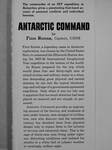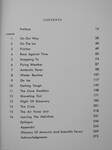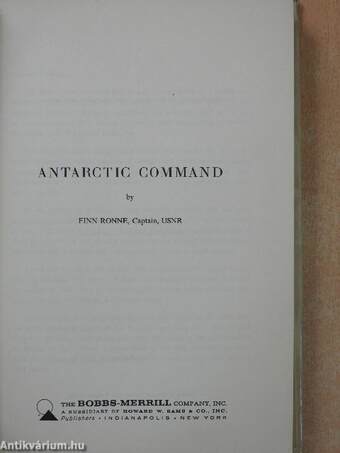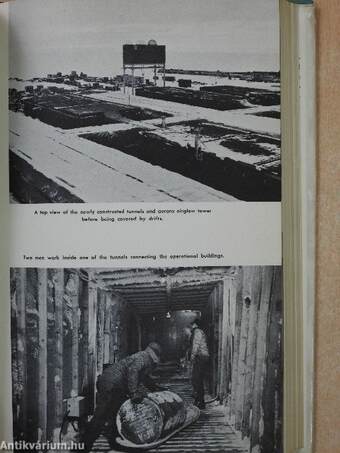1.062.289
kiadvánnyal nyújtjuk Magyarország legnagyobb antikvár könyv-kínálatát

VISSZA
A TETEJÉRE
JAVASLATOKÉszre-
vételek
Antarctic Command
The inside story of the scientists and military personnal who spent a year in Antarctica under the International Geophysical Year Program, 1957-58, as told by their commander from his experiences at Ellsworth Station, Edith Ronne Land
| Kiadó: | The Bobbs-Merril Company, Inc. |
|---|---|
| Kiadás helye: | Indianapolis |
| Kiadás éve: | |
| Kötés típusa: | Ragasztott kemény kötés |
| Oldalszám: | 272 oldal |
| Sorozatcím: | |
| Kötetszám: | |
| Nyelv: | Angol |
| Méret: | 24 cm x 16 cm |
| ISBN: | |
| Megjegyzés: | Fekete-fehér fotókkal. |
naponta értesítjük a beérkező friss
kiadványokról
naponta értesítjük a beérkező friss
kiadványokról
Előszó
TovábbFülszöveg
THE AUTHOR
Captain Finn Ronne stands unique in the exploration of the Antarctic. He is the only American explorer whose father before him was devoted to this enterprise. His father, Martin Ronne, of Norway/ was with Amundsen's historic South Polar expedition and later was a member of Byrd's first expedition. Finn Ronne following in his father's footsteps, participated in five Antarctic expeditions. He is the only living American who organized and directed his own private expedition. In charge of his own team of explorers he discovered vast tracts of unknown territory, now named for his wife—Edith Ronne Land. Edith Ronne accompanied this expedition and thus becomes the third member of this unique family of Antarctic explorers. Captain Ronne is a veteran of the lecture platform and the author of ANTARCTIC CONQUEST, the account of his 1947 expedition. He holds three Congressional medals and many other recognitions of his service as a polar explorer.
The commander of an IGY... Tovább
Fülszöveg
THE AUTHOR
Captain Finn Ronne stands unique in the exploration of the Antarctic. He is the only American explorer whose father before him was devoted to this enterprise. His father, Martin Ronne, of Norway/ was with Amundsen's historic South Polar expedition and later was a member of Byrd's first expedition. Finn Ronne following in his father's footsteps, participated in five Antarctic expeditions. He is the only living American who organized and directed his own private expedition. In charge of his own team of explorers he discovered vast tracts of unknown territory, now named for his wife—Edith Ronne Land. Edith Ronne accompanied this expedition and thus becomes the third member of this unique family of Antarctic explorers. Captain Ronne is a veteran of the lecture platform and the author of ANTARCTIC CONQUEST, the account of his 1947 expedition. He holds three Congressional medals and many other recognitions of his service as a polar explorer.
The commander of an IGY expedition to Antarctica gives a penetrating first-hand account of personal conflicts and individual heroism.
I ANTARCTIC COMMAND
by
Finn Ronne, Captain, USNR
Finn Ronne, a legendary name in Antarctic exploration, was chosen by the United States Navy to command the Ellsworth Station during the 1957-58 International Geophysical Year expedition to the bottom of the world.
As Ronne prepared for the trip which would place him and thirty-eight men of mixed civilian and military status in a situation demanding great physical and mental stamina, he ran into the typical shortcomings and red tape of a government-sponsored expedition. Only when it was too late was it apparent that too much attention had been placed on materiel and not enough on personnel.
Antarctic Command provides an engrossing account of the bravery and weakness of men under tension, men stripped of civilization, men who discover that the twentieth century has sheathed them from physical danger only to expose them to the tortures of nervous and emotional chaos. This is the saga of thirty-nine men living under rigorous, disturbing conditions and isolated for months in a white hell of subzero weather in seemingly endless night.
Antarctic Command tells of the breathtaking sea trip as the expedition approached the South Pole through the tempestuous waters off the Straits of Magellan and into the jamming ice of the Weddell Sea. It relates the frustration of setting up camp in a race against the oncoming ferocity of the Antarctic winter. It tells of extravagance and laziness interlaced with gallantry and wisdom.
The exhilarating beauties of the Antarctic come to life as Captain Ronne records the swirling magnificence of the phenomenal Aurora Australis, the vast stretches of white wilderness pocked with death traps, the glee of the penguin, and the constant terror of the killer whale lurking in the ice pack. He cites the productive work of the men of the expedition and their contributions to scientific knowledge which will benefit mankind for years to come.
The greatest enemy to the success of this scientific expedition came from within the minds of the men themselves. Ronne reports the ever-growing tensions of men in isolation, the human frictions which feed on indolence, the petty jealousies growing into dangerous disciplinary situations. This study of the inter-relationships of men in extreme conditions of stress and isolation is a valuable extension of our knowledge of the subject. Vissza
Témakörök
- Idegennyelv > Idegennyelvű könyvek > Angol > Szépirodalom > Regény, novella, elbeszélés
- Idegennyelv > Idegennyelvű könyvek > Angol > Természettudományok > Földrajz
- Idegennyelv > Idegennyelvű könyvek > Angol > Útleírás
- Útleírás > Expedíciók
- Útleírás > Idegennyelvű útleírás > Angol
- Útleírás > Kontinensek > Sarkvidékek
- Szépirodalom > Regény, novella, elbeszélés > Az író származása szerint > Európa > Norvégia
- Szépirodalom > Regény, novella, elbeszélés > Tartalom szerint > Földrajzi besorolások > Földrajzi felfedezések
- Természettudomány > Földrajz > Kontinensek földrajza > Topográfia szerint > Sarkvidékek
- Természettudomány > Földrajz > Idegen nyelv > Angol
- Szépirodalom > Regény, novella, elbeszélés > Tartalom szerint > Útikalandok, útirajzok
Finn Ronne
Finn Ronne műveinek az Antikvarium.hu-n kapható vagy előjegyezhető listáját itt tekintheti meg: Finn Ronne könyvek, művekMegvásárolható példányok
Nincs megvásárolható példány
A könyv összes megrendelhető példánya elfogyott. Ha kívánja, előjegyezheti a könyvet, és amint a könyv egy újabb példánya elérhető lesz, értesítjük.



